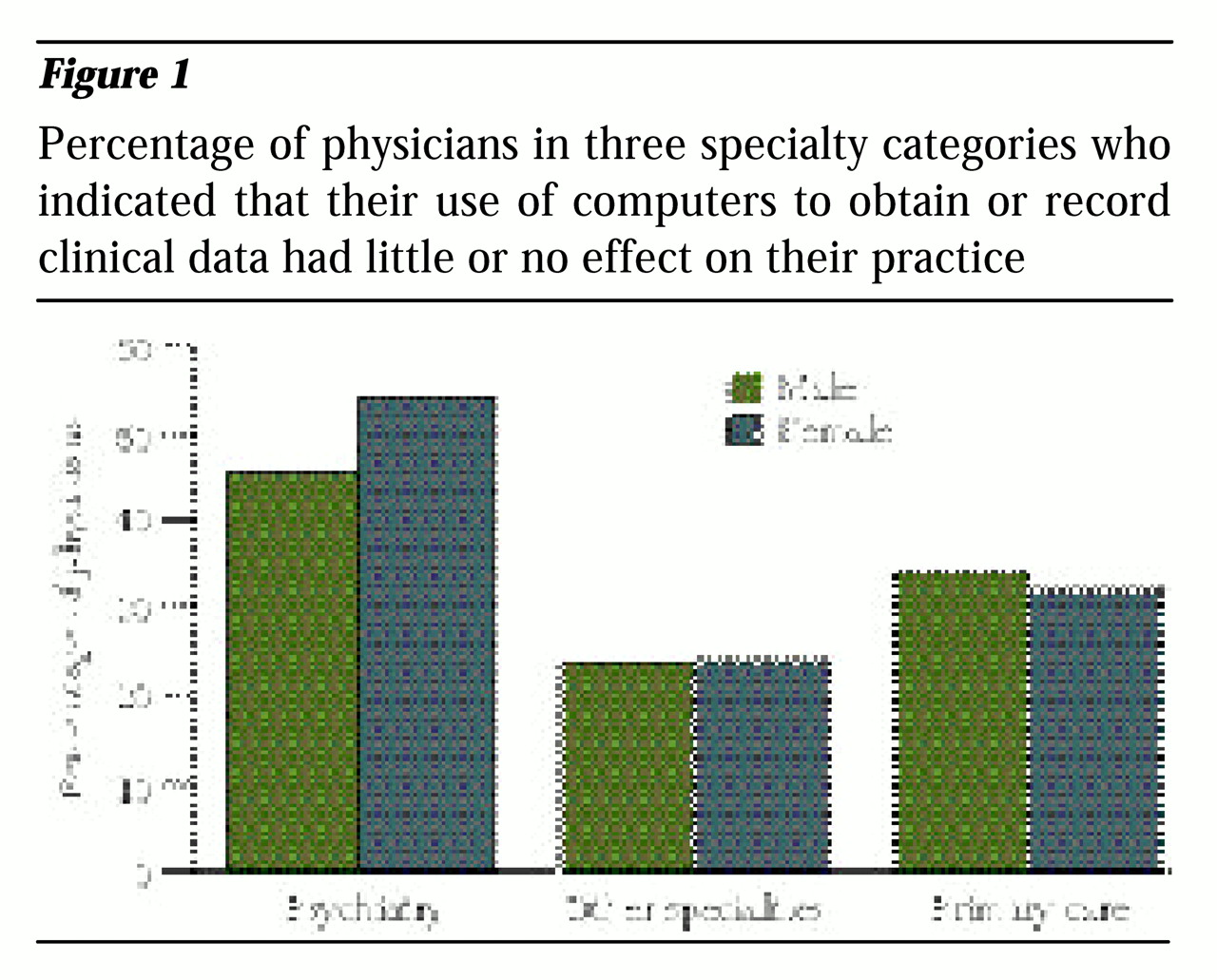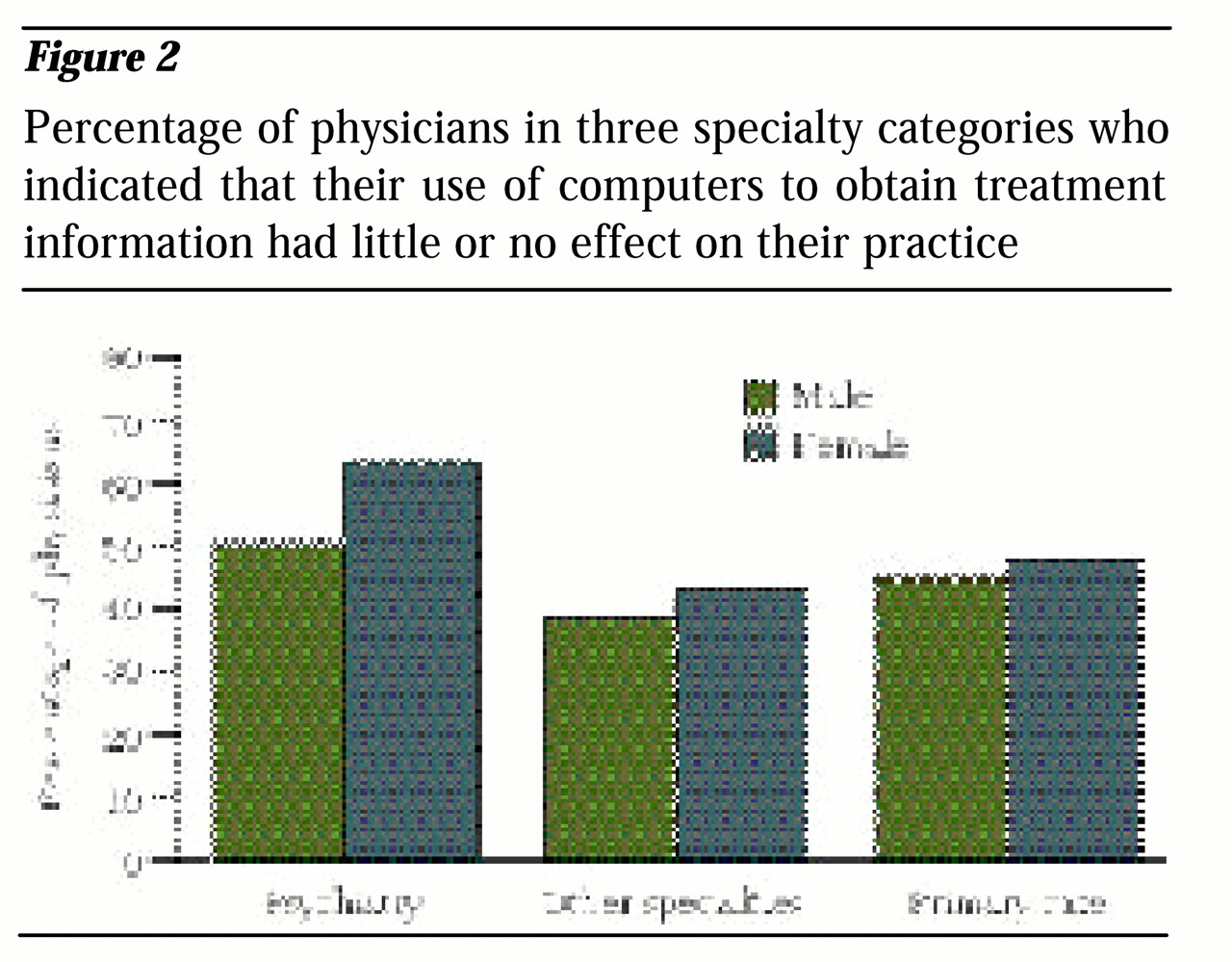Computers and the Internet are changing how information is accessed and exchanged, which has implications for the practice of psychiatry (
1). Health-related Web sites are among the most visited sites on the Internet, and their use may change the patient-provider relationship.
This column addresses the effect of computers on obtaining clinical data and treatment information among physicians in different specialties. The data are from the Community Tracking Study physician survey (
1), which surveyed active physicians in the United States between August 1996 and August 1997. Interviews were conducted with 623 psychiatrists, 4,708 other medical and surgical specialists, and 7,197 primary care physicians. The overall response rate was 65.4 percent.
Two questions were asked about the role of computers in their practice of medicine: "How large an effect does your use of computers to obtain or record clinical data, such as medical records and lab results, have on your practice of medicine?" and "How large an effect does your use of computers to obtain information about treatment alternatives or recommended guidelines have on your practice of medicine?"
Figure 1 shows the percentage of male and female physicians in each of the three groups whose response to the first question was "a very small effect" or "no effect."
Figure 2 shows the corresponding numbers for the second question. The difference between psychiatrists and other physicians is large and highly significant (p<.001 for each comparison). The results did not differ when the analysis adjusted for age to take into account that the average psychiatrist is older than the average physician. Among psychiatrists, concerns about breaches of confidentiality could limit the use of computers for obtaining or keeping clinical data (
Figure 1). However, confidentiality concerns should have no impact on the use of computers to keep up with new information about treatments, and the difference between psychiatrists and other physicians is just as pronounced in this dimension (
Figure 2).
A disconcerting finding is the gender gap among psychiatrists, which is as large (for question 2) or even larger (for question 1) than the gap between psychiatrists in the youngest and oldest quartiles. No similar systematic gender difference appears to exist among other physicians, nor is there a similarly large difference in any computer use between men and women in the general population. It appears that psychiatrists are lagging behind their peers in the adoption of newer information technology and that the gap is particularly large for female psychiatrists.



